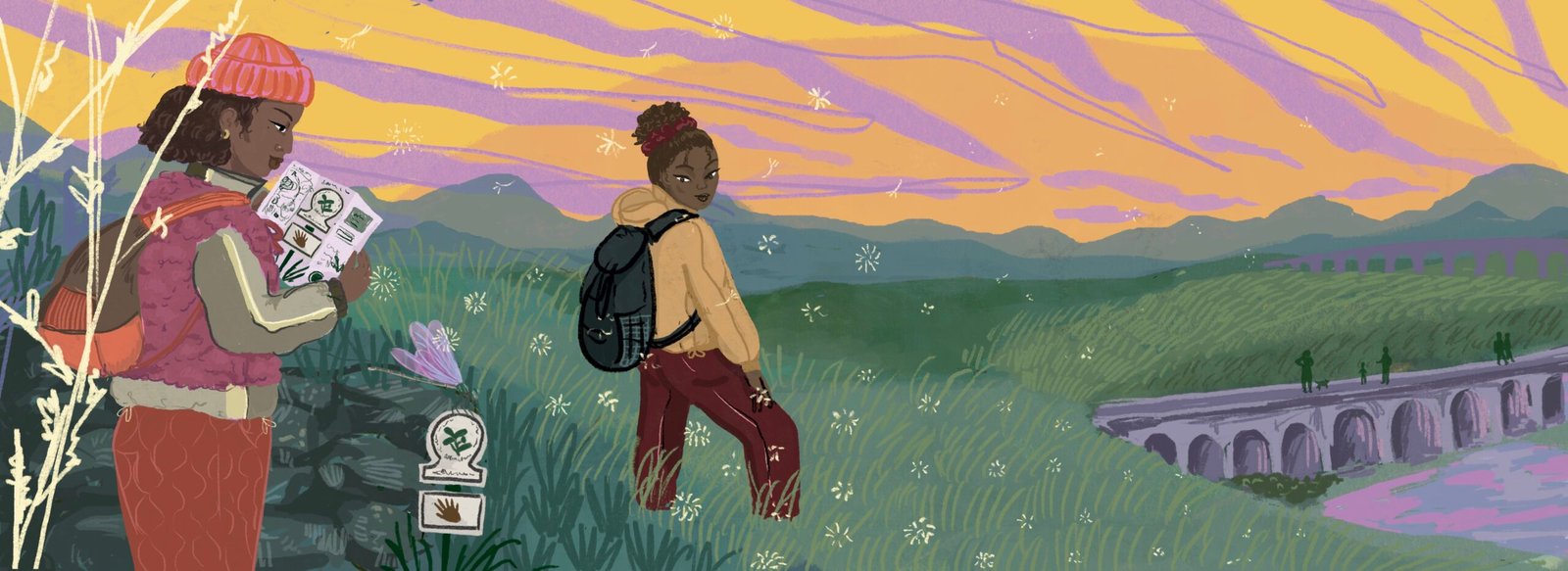reflections
What do we mean by decolonising the British countryside? by Michaela Makusha

This week I read this super-interesting piece by Michaela Makusha on enaging with rural spaces as a way for marginalised communities to reclaim them, particularly in the British context. It explained really effectively the barriers that black and brown people face as visible minorities in the countryside, but how this is gradually changing for the better.
national (lack of) trust?
Institutions such as the National Trust, a conservation charity and one of the largest landowners in the country, have begun addressing the historical connections of their properties to British empire and slavery. Yet a lot more can be done.
These colonial links are something I’ve never fully interrogated before. Of course it makes complete sense, given how intertwined British institutions are with empire. But rural areas have rarely been at the forefront of my mind. As a city boy with a diverse family background, I’ve never felt at home in the rolling green hills or quaint villages of the British countryside. Nor have I ever associated the National Trust, with its maintenance of stately homes and castle gardens, with my interests or stake in this nation.
And yet, I’m not too down on the UK to realise that large swathes of the countryside are impressive, beautiful and worth preserving. But decolonising the countryside by properly contextualising how these places came to be, how they made their trade and historically situating them, could help us feel more trustful and at ease with our rural areas. Education and recognition of the past can surely only be a good thing.
As Michaela writes in the piece, “In failing to engage with the bloody history of some of Britain’s most beautiful areas, we also fail to understand why so many Black and brown people don’t feel welcome there. No one likes to stick out, and no one likes walking around places that were enriched by the pain and suffering of our ancestors.”
it often comes back to food
Michaela discusses Professor Corrine Fowler, who has taken it upon herself to reveal those links between National Trust properties and our colonial past. In a Guardian article about Fowler, there is a point made about how the gingerbread made in Grasmere, Lake District comes from an old “secret recipe.” As the article touches on, at one point the rum and ginger used in these treats would’ve arrived to the nearby Whitehaven port from Jamaica, being deeply connected to the transatlantic slave trade.
It made me consider how the origins of our food and drink is often obscured – the classic example being British tea (it’s not from Yorkshire!), as I wrote about in this shado article. It seems to me that Britain’s insitutional instincts during the peak of empire was to brag about where all these ‘exotic’ spices came from – taking pride in conquest – then since the decline, it’s more common to claim that they were British all along.
No British institution is safe from newfound associations to slavery and empire. See Jane Austen too – sorry literary nerds.
But the point of uncovering these details is only problematic if you consider it a bad thing to reassess and revisit our history. This is not about cancelling anything, but recorrecting and recontextualising.
history evolves
The right would like to believe history is set in stone – Britain led a noble empire which helped people and built railroads, and we defeated the Nazis and we are magnanimous. But historical memory is lathered in bias and mist. We are all selective when considering our country’s history, but decolonising the countryside through education and exploration, as per Michaela’s article, is an attempt to address the hidden past, our real history.
We can’t pretend that empire and the conquest of peoples didn’t happen. But nobody is saying we should abolish our beautiful countryside or sites of interest – only that we properly contextualise them and celebrate them as real places, with blood and pain, as well as beauty surrounding them.
~ Tommy
smirk of the week 😏

shado in focus
This recent episode of shado in focus is a tale of love, loss and gentrification in Brixton – brought to us by Simmone Ahiaku. Highly thought-provoking, I recommend listening to it during your commute, or a drizzly Sunday afternoon walk.
one thing to watch:
Anora (2024) – Go to your local cinema and watch Anora, now!
Sean Baker’s movie about a sex worker in Brooklyn developing a whirlwind relationship with a spoilt young Russian is elevated by dazzling cinematography and a powerhouse performance by Mikey Madison in the titular role. It’s equal parts sexy, funny and gut-wrenching. Don’t stream this one – you need to experience it with a packed-out big screen, trust me! There’s still time!
one thing to groove to:
…. Subscribe HERE for full free post.

